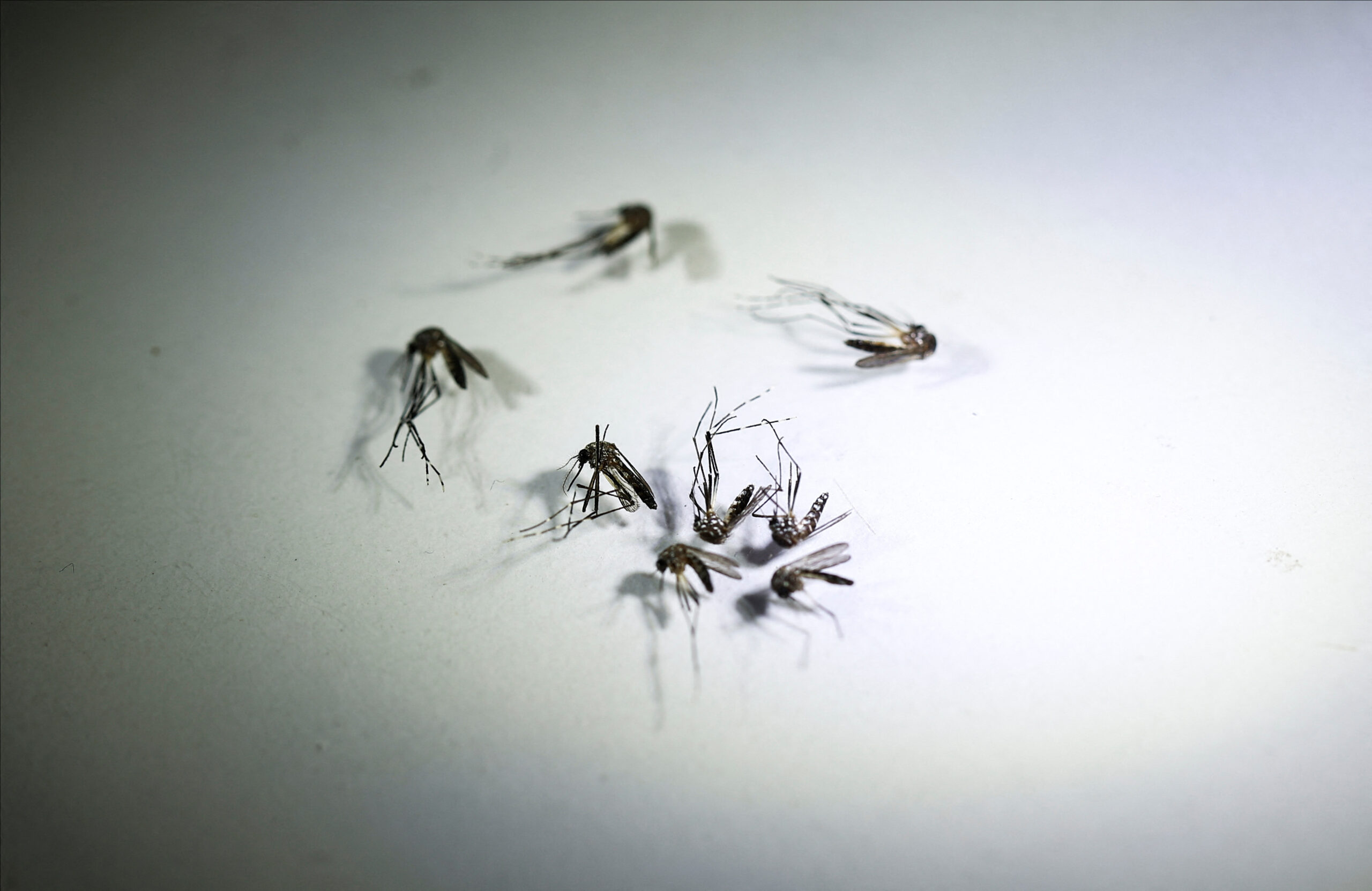
Aedes aegypti mosquitoes are seen in Buenos Aires, Argentina March 13, 2024. REUTERS
BUENOS AIRES/SALTA, Argentina — A major outbreak in Argentina of dengue, a mosquito-borne illness that can be fatal, is on track to smash previous records, reflecting wider worry around South America where warmer and wetter weather has led to a surge in cases.
Over 120,000 cases have been recorded so far in Argentina in the 2023/24 season, with the bulk of those in the last two months. That puts it far ahead of the previous season, already the worst on record.
“We are experiencing Argentina’s largest dengue outbreak,” said Mariana Manteca Acosta, a director of diagnostics and investigations at the Malbran Institute and a specialist in infectious diseases. “There are 200% more cases than at the same time in the season last year.”
READ: India firm looks beyond COVID with new malaria, dengue vaccines
Dengue symptoms include a high fever, headache, vomiting, skin rash, and muscle and joint pain that can be so severe the disease has been called “break-bone” fever. In some cases it can cause a more severe hemorrhagic fever, resulting in bleeding that can lead to death.
There have been 79 deaths so far this season in Argentina, the latest government figures show.
Neighboring Brazil is also battling a rise in cases, with dengue spreading into regions it was not previously found.
Most cases usually come during the southern hemisphere’s late summer months from February to May, when the weather is often hot and humid. But this year higher numbers of cases have been observed earlier in the season.
In the first ten weeks of the calendar year there were some 103,000 dengue cases, government data show, over ten times the 8,343 cases recorded in the same period last year, when the main peak was later in April.
READ: DOH reports drop in dengue cases nationwide from Jan 1 to Feb 10
Valeria Medina, 36, being treated for dengue in a hospital in the northwestern Argentine province of Salta, said there was not enough awareness of the disease and that some people faced a hard time getting diagnosed and treated.
“It’s a disease that, out there, one doesn’t take very much into account, but it’s ugly,” Medina said.
Infectious disease specialist Eduardo Lopez, from the Ricardo Gutierrez Hospital in Buenos Aires, said this season was almost certain to overtake last year.
“With the projections as it is, we will exceed last year,” he said. “We still have all of April, the rest of March and at least 15 days of May. So we are going to exceed 130,000 cases. This year is going to be a record.”
The Pan American Health Organization (PAHO) last month issued a warning on increased cases across the region, after last year marked the highest number of cases in decades.